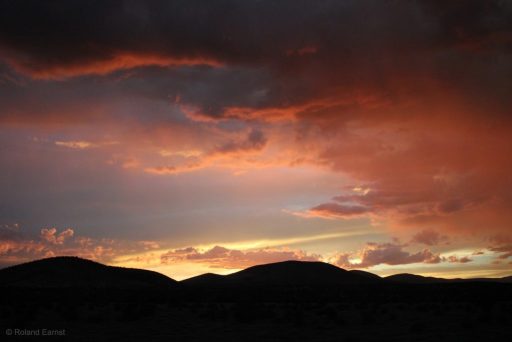
We were riding through the Arizona desert shortly before sunset on a Does God Exist? canyonlands field trip. We saw a storm in the distance, and it quickly surrounded us. Then, the storm lifted to reveal the sunset. We couldn’t stop gazing out of the bus window to enjoy the beauty of it all.
This incident reminded us that God sends the sunshine, and the rain, even in the desert. It also reminded us that God created a beautiful world and gave us the ability to enjoy that beauty. I think that ability is evidence that God created us in His image. God must enjoy beauty because He has created a universe of beautiful things that humans will never even see. We are aware of some of them only because our telescopes or space probes sometimes give us small glimpses of the beauty normally hidden from our eyes.
Even on our planet, there are beautiful things to be seen in locations where few people ever go. After scaling mountain peaks, a few of us enjoy the beauty of the valley below. While on the mountain, we look down and see beautiful flowers that grow in the rocky soil and cold air. Colorful plants and animals live and grow in the ocean, where only the most adventurous humans can enjoy their beauty. God sees all of the beauty, wherever it may be.
Are there any creatures other than humans that will stop to enjoy the beauty of a sunset? Thankfully, God has gifted humans with that ability. However, we often fail to do so because we think we are too busy. However, if we pause long enough to enjoy the beauty, we might be compelled to give thanks not only for the beauty but also for the ability to enjoy it.
— Roland Earnst © 2021

